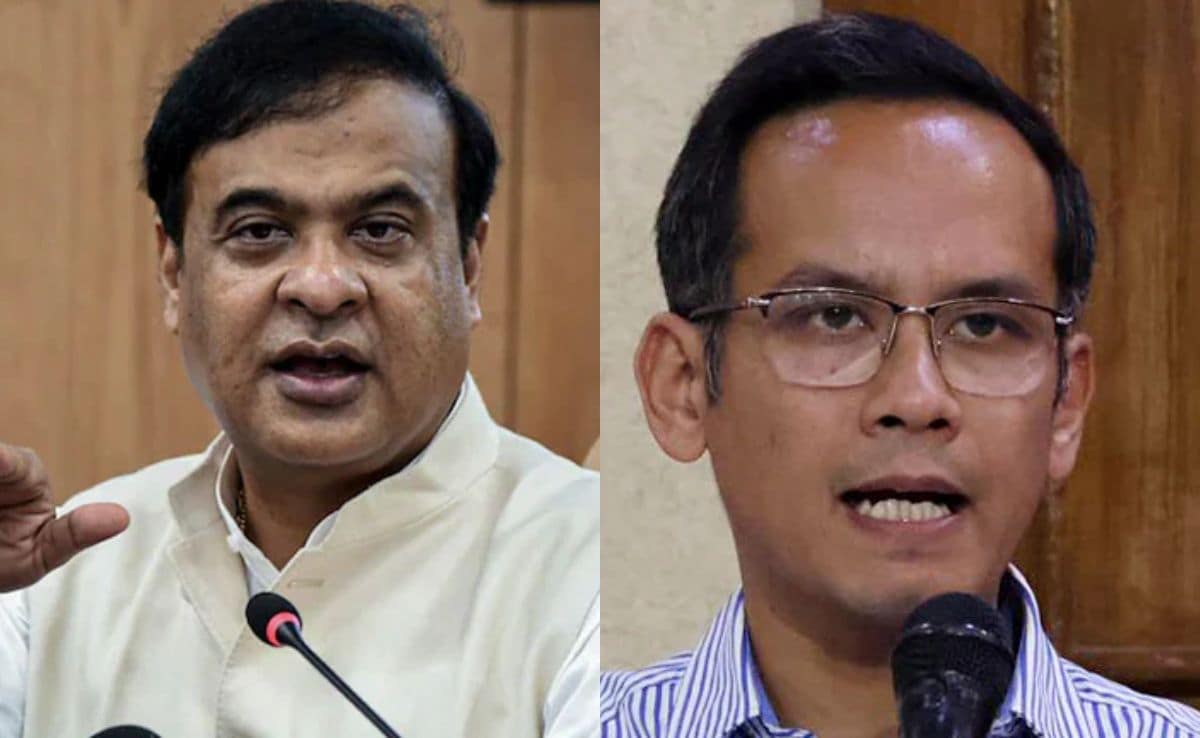Controversy Erupts Over Assam MP’s Inclusion in Delegation Addressing Terrorism from Pakistan
In a surprising turn of events, Assam Chief Minister Himanta Biswa Sarma has vocally opposed the nomination of Congress MP Gaurav Gogoi to an all-party delegation that will travel abroad to address India’s stance on terrorism emanating from Pakistan. The chief minister’s concerns stem from allegations related to Gogoi’s past visits to Pakistan and contentious ties to a Pakistan-based NGO. This debate over who should represent India on such a crucial international platform has ignited a political firestorm, raising questions about national security and political allegiance.
The crux of the matter involves Gogoi’s alleged connections that have prompted Sarma to publicly request the withdrawal of his nomination from the sensitive and strategic assignment. Following the announcement made by Congress leader Jairam Ramesh regarding the delegation, Sarma took to social media to express his discontent, citing Gogoi’s past stays in Pakistan and claims that his wife received a salary from an NGO linked to Pakistan.
The selection of the delegation comes at a time when India’s relations with Pakistan are strained, particularly in light of ongoing terrorism issues. Sarma’s statements have set the stage for a broader debate on national security and the role of political figures in diplomatic missions.
Allegations Fuel Political Tensions
Sarma’s vocal opposition to Gogoi’s inclusion is attributed to two primary allegations: Gogoi’s purported two-week stay in Pakistan and concerns over his wife’s employment with a Pakistan-based NGO. According to Sarma, these factors pose a significant risk and undermine Gogoi’s credibility as a representative of India aiming to combat terrorism on an international stage.
In his remarks, Sarma urged the Leader of the Opposition, Rahul Gandhi, to reassess Gogoi’s nomination. “In the interest of national security and beyond partisan politics, I urge Rahul Gandhi not to include this individual in such a sensitive and strategic assignment,” Sarma articulated in a tweet. His emphasis on national security indicates that the stakes of this political rivalry are far more significant than mere disagreement over party lines.
Gogoi, who has not publicly addressed Sarma’s allegations, is viewed by critics as aligning with Pakistan’s narrative rather than confronting the ongoing security threats that the country faces. “We have evidence that his wife was paid at least for two years by a Pakistan-based NGO that is very close to the ISI. How can that MP go outside and expose Pakistan under these circumstances?” Sarma reiterated when speaking to reporters.
This feud underscores the ongoing polarization in Indian politics, particularly around issues of nationalism and security. The timing of these allegations also raises questions about the motivations behind Sarma’s public outcry, as well as Gogoi’s political future.
Background of the Delegation’s Purpose
The all-party delegation is set to travel to various countries with the aim of informing global leaders about India’s struggles with terrorism that is allegedly supported by Pakistan. The delegation’s mission is to present a unified front, lending credibility to India’s claims and fostering international support against terrorism.
Given the sensitive nature of the discussions surrounding terrorism, the inclusion of any individual with questionable links raises alarm bells. Today’s geopolitical climate necessitates that representatives maintain a clear and unambiguous commitment to national interests. As per the report by Deccan Herald, Sarma’s comments reflect the growing concern among political leaders regarding the potential impact of internal dissent on India’s international standing.
This incident serves as a stark reminder of the delicate balance that needs to be maintained between domestic politics and international diplomacy. While political leaders must address domestic issues, they must also ensure that their actions do not undermine the security interests of the nation.
The Fallout of Allegations
As the political drama unfolds, the implications of Sarma’s allegations against Gogoi could have lasting effects on both their political careers. For Gogoi, the burden now lies in discrediting Sarma’s claims and reaffirming his dedication to India’s national security. His ability to navigate this crisis will be crucial in maintaining his position and credibility within the Congress party.
Moreover, Sarma’s strong stance may galvanize support among his political base, further entrenching the divide between the ruling party and the opposition. As political actors maneuver through this contentious landscape, the question remains whether Gogoi can effectively counter the allegations that threaten to derail his political ambitions.
For observers, this saga serves as a critical lens through which to examine the intertwining of national security and political maneuvering in contemporary India. The growing concerns over terrorism and the political responses it elicits indicate that the lines between security and politics are increasingly blurred.
Moving Forward Amidst Controversy
The road ahead for both Sarma and Gogoi will undoubtedly be fraught with challenges. As the delegation’s departure date approaches, the focus will shift to how these two political figures address the unfolding controversy. Will Gogoi rise to the occasion, or will the weight of allegations exponentially hamper his efforts?
As India continues to grapple with threats of terrorism, the need for strong and credible representation becomes paramount. The power dynamics and internal conflicts currently at play will not only influence the trajectory of both politicians but may also significantly impact India’s stance on the global stage regarding terrorism.
Both state-level and national figures must navigate this intricate web of alliances, accusations, and public perceptions to ensure that India is effectively advocating for its security interests.
For more insight into the ongoing situation, readers may find it beneficial to explore related content on the implications of political dissent on national security[here](https://www.hindustantimes.com) and[here](https://www.thequint.com).
As the controversy continues to develop, the Indian political landscape remains one to watch closely, as it reflects the complexities of governance in a diverse and multifaceted democracy.
DISCLAIMER
We have taken every measure to ensure that the information in this article and on our social media platforms is accurate, verified, and obtained from reliable sources. For feedback or complaints, please contact us at info@hamslive.com.


